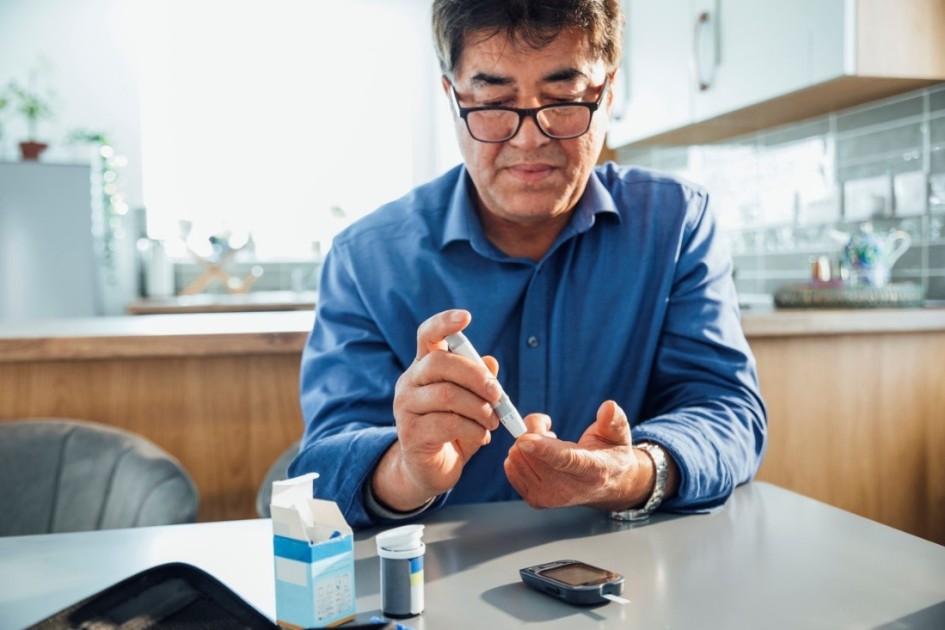
How Diabetes Can Affect Your Eye Health
Diabetes is a serious disease that can affect many parts of your body, including your eyes. In fact, diabetes is the leading cause of blindness in adults in the United States. If you have diabetes, it is important to be aware of the ways the disease can affect your eye health and take steps to protect your vision.
Diabetes can damage your eyes in a number of ways.
According to the National Eye Institute, anyone with any kind of diabetes can get diabetic retinopathy— including people with type 1, type 2 and gestational diabetes (a type of diabetes developed during pregnancy).
Diabetes can bring about a few different eye issues, including:
- Blurry vision– When your blood sugar gets high, your lens could swell. This will cause your vision to blur. In order to get it back to normal, you need to get your blood sugar back into your target range. You should also inform your eye doctor, so they can let you know if this is a symptom of something more severe.
- Cataracts– The natural internal lens of your eye allows your eye to see and focus, similar to a camera lens. When that lens becomes obstructed, like smudges on a window, it’s likely a cataract has formed. Anybody can develop cataracts; however, those with diabetes tend to get them sooner and in greater numbers.
- Glaucoma– Glaucoma causes pressure to build up inside your eye. This pressure can damage your nerves and change your vision. Diabetics are more likely to have glaucoma, which can come in several types. Open-angle glaucoma is most common, and it may not cause symptoms until it is further along. Medications, laser surgery and conventional surgery are common treatments for glaucoma.
What can be done to help prevent diabetic retinopathy?
The best way to help prevent diabetic retinopathy is by keeping your diabetes under control. That means maintaining your blood sugar levels within your target range as much as possible. You should also have regular eye exams so any changes in your vision can be detected and treated early.
Another reason not to smoke: Smoking increases your risk of developing diabetic retinopathy and high blood pressure. High blood pressure and high cholesterol, in conjunction with diabetes, dramatically raise the chance of diabetic retinopathy. Controlling your blood pressure and cholesterol can also help you avoid this threat to your eyesight.
How is diabetic retinopathy treated?
If you have diabetic retinopathy, treatment can help prevent it from getting worse. Early detection and treatment of diabetic retinopathy are important to help preserve your vision.
Treatment for diabetic retinopathy usually involves one or more of the following:
- Injections of anti-VEGF drugs into the eye– These drugs can help stop the growth of abnormal blood vessels in the eye.
- Laser surgery– This type of surgery can be used to destroy abnormal blood vessels or treat blockages in normal veins.
- Conventional surgery– This method removes scar tissue from the retina to relieve pressure on the optic nerve.
While diabetic retinopathy is the most common threat to vision diabetics face, there are others to be aware of:
- Maculopathy– This occurs when diabetes affects the macula, which is your retina's most sensitive area. It is used for reading, driving and other similar tasks. The swelling that develops could be easily reversed or might be more serious and harder to treat.
- Proliferative retinopathy– This condition appears when cells at the back of your eye do not receive enough oxygen, prompting new blood vessels growth. The new vessels are fragile, making them more likely to bleed, which could lead to a clot. This can cause scar tissue to pull your retina away from the back of your eye. If it becomes detached, you could have total vision loss that can't be repaired.
If you have diabetes, it is important to be aware of the ways it affects your eye health, so you may take steps to protect your vision. By keeping your diabetes under control and having regular eye exams, you can help prevent vision loss from diabetic retinopathy. As always, you should speak with your doctor and make sure your diabetic care plan includes special attention to your vision.
